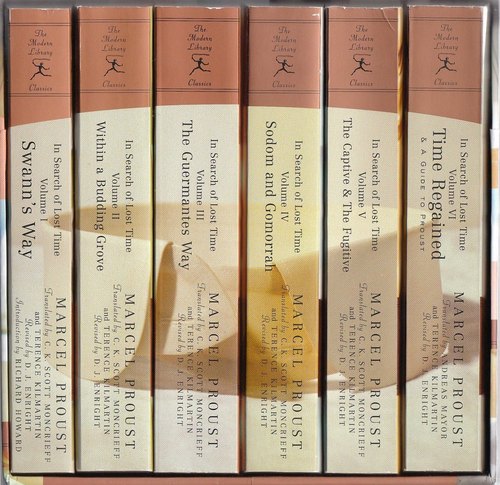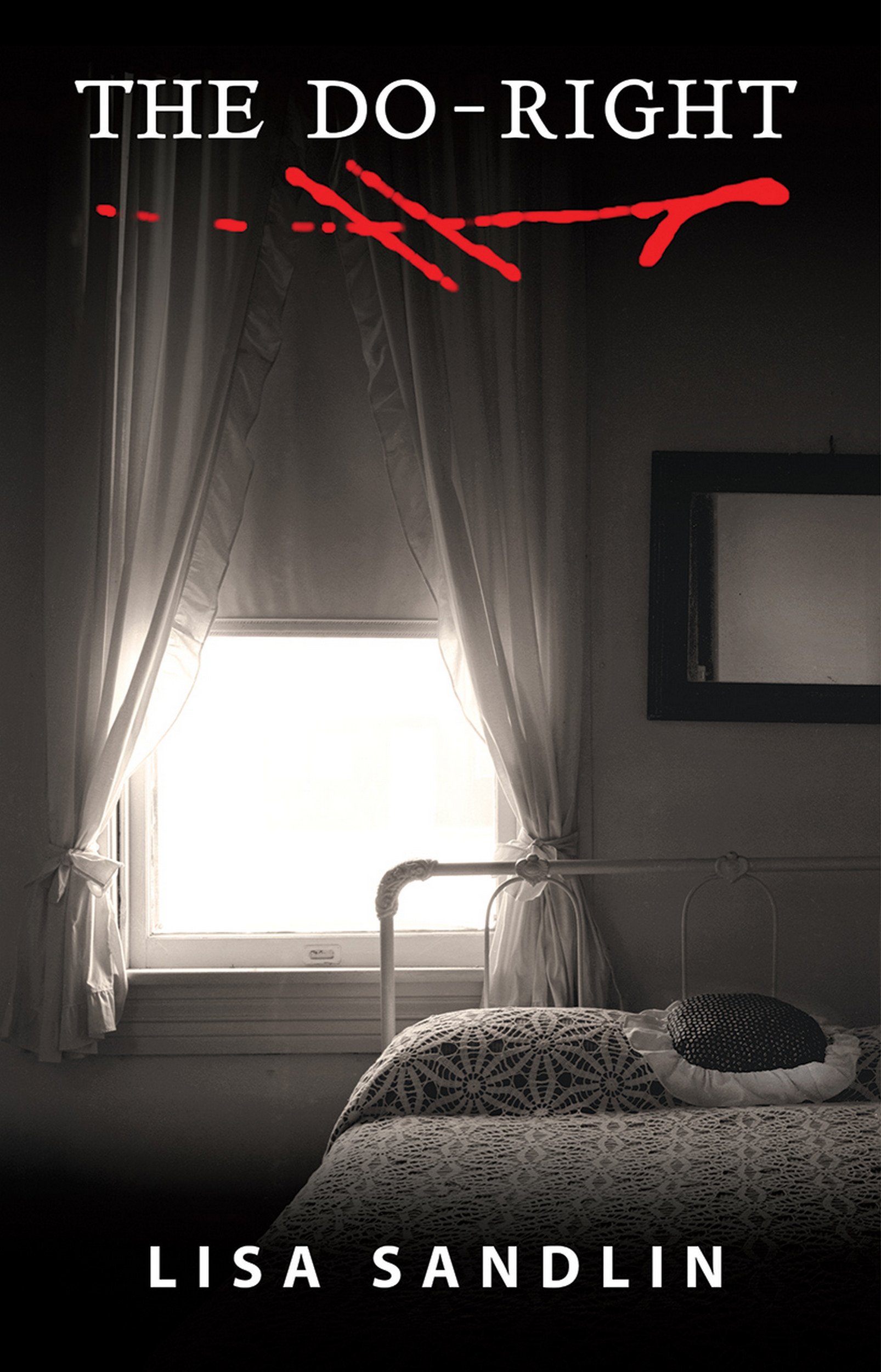
Reading IN SEARCH OF LOST TIME sounded like a perfect activity for the COVID-19 semi-quarantine–it was something I might otherwise not have time for, it would fill a big gap in my lifetime list of classic novels, and it would (I hoped) give me something to look forward to every day.
After consulting a couple of Proust veterans, I decided to go with the “six-pack” from Modern Library: the Moncrieff translation, twice revised, with seven “novels” (it’s really all one continuous story) in six volumes in a slipcase. I read the opening pages on Amazon, liked them, and sprang for the box.
The novel’s detail is both its greatest strength and its greatest weakness. It follows the nameless first-person narrator (at one point he is hypothetically given the name “Marcel,” but, as with many aspects of the book, this seems to have been a momentary impulse on Proust’s part, which he quickly abandoned) from childhood to middle age, going into some aspects at obsessive length (one party scene, during which nothing of particular importance happens, goes on for 180 pages) and gliding over others with mystifying speed (at one point the narrator casually mentions that he fought several duels because of his stance on the Dreyfus Affair–surely this was worth dramatizing, given the narrator’s physical weakness and crippling sensitivity). When it works, as in the aforementioned long party scene, the narrator’s microscopic examination of his and others’ feelings, his unraveling of the hermetic social codes, the depth of his characterizations and physical descriptions, are truly rewarding. When it flounders, as in his endless picking at his psychotic jealousy of his “great love,” Albertine, the novel can be suffocating.
Proust’s grand theme seems to be love, but his narrator, as far as I can tell, never experienced it. Or rather, his definition of love is so twisted that I’m hard-pressed to even call it love. According to the narrator, no two people have ever loved each other at the same time. If one of them is overcome by affection and submissiveness, the other reacts immediately with revulsion. This, per the narrator, is an inviolable law of nature.
There is, however, a great deal of sex. Husbands have multiple mistresses and wives take on a succession of casual lovers. The narrator has only to hop in his carriage and drive down the street to find an endless supply of willing females. The Baron de Charlus (perhaps the most interesting character in the novel) works hard to maintain his reputation as a lothario, while semi-secretly carrying on a series of homosexual affairs. There is an elaborate web of lesbian relationships that Albertine may or may not be involved in.
Then it really gets weird. One afternoon, in boredom, the narrator convinces a very young girl (exact age never specified) to come home with him, where he plays with her on his lap until he gets bored, then sends her home with 500 francs. Her parents quite naturally call the police, but then, as now, the narrator’s wealth and social position result in the charges being dropped. The narrator insists that his interest is purely innocent, though nobody believes him. Nor do I think that we, as readers, are meant to. This is reinforced later when the narrator insists that he can only recapture his teenage feelings of romance by having sex with 16-year-old girls.
At hardly any point does the narrator show concern for anyone’s feelings but his own.
So what are we left with? A rich, privileged sociopath, stalker, and pedophile with towering self-regard (the latter shows up once he conceives his masterwork, the very novel the reader has in hand). Labyrinthine prose with sentences so convoluted that I often had to read them repeatedly: once just to untangle the syntax, then a second time for the meaning. A conspicuously unfinished novel that Proust was still rewriting furiously when he died, where characters are reported dead on one page, then show up again a few pages later.
And yet…
As a portrait of an era, of neurasthenia, of the power of music, painting, and words; as a spectacle of the idle rich and their cruel games; as a painfully intense tour of a consciousness that worries every nuance of possible meaning out of everything it sees and hears, IN SEARCH OF LOST TIME is unlike anything else I’ve ever read. I’m glad I made it all the way through, though I don’t see myself recommending it to anyone else.



